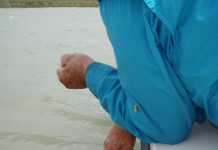Texas will receive $203 million over a five-year period to restore Gulf of Mexico coastal natural resources impacted by the Deepwater Horizon oil spill, the National Fish and Wildlife Foundation announced Monday.
The foundation will administer the Gulf Environmental Benefit Fund involving $2.544 billion from plea agreements resolving certain criminal cases arising from the 2010 explosion and oil spill in the Gulf, according to a news release.
The foundation also outlined procedures and criteria for selecting projects for funding in the affected states of Alabama, Florida, Louisiana, Mississippi and Texas.
As mandated in the plea agreements, the foundation has consulted with natural resource management agencies in each of the five Gulf States and with the National Oceanic and Atmospheric Administration and the U.S. Fish and Wildlife Service. In Texas, those agencies are Texas Parks and Wildlife Department, Texas Commission on Environmental Quality and Texas General Land Office. The input of these agencies will be the primary means through which project selection under the Gulf Fund will be coordinated with actions of the Deepwater Horizon Natural Resource Damage Assessment trustees and the RESTORE Council.
Under the terms of the plea agreements between the Department of Justice and BP and Transocean, the Gulf Environmental Benefit Fund will receive a total of $1.272 billion for barrier island and river diversion projects in the state of Louisiana; $356 million for natural resource projects in each of the states of Alabama, Florida, and Mississippi; and $203 million for similar projects in the state of Texas. Payments into the fund will occur over a five-year period, with more than half the funding coming in years four and five, according to the release.
The first payments totaling $158 million were received in April and the next installments are scheduled for February under the terms of the agreements.
The primary criterion for project selection is to “remedy harm and eliminate or reduce the risk of future harm to Gulf Coast natural resources” that were impacted by the Deepwater Horizon oil spill, as required in the plea agreements.
Further criteria will emphasize projects that advance priorities in natural resource management plans such as those called for under the RESTORE Act, are within reasonable proximity to where impacts occurred as appropriate, are cost-effective, maximize environmental benefits, are science-based and that produce measurable and meaningful conservation outcomes to habitats and species of a type impacted by the oil spill.
The plea agreements require that the funds designated for Louisiana be allocated solely to barrier island restoration projects and river diversion projects along the Mississippi and Atchafalaya rivers. In identifying such projects, NFWF will give appropriate consideration to Louisiana’s Coastal Master Plan and the Louisiana Coastal Area Mississippi River Hydrodynamic and Delta Management Study.
Organizations or agencies interested in submitting project proposals for consideration should direct that information to the lead state agency in the appropriate Gulf state as identified on the NFWF website.






















